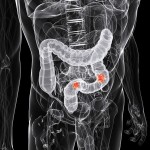Get Screened for Colon Cancer For You
Why Every Boomer Should Get Screened for Colon Cancer
By Eric Hargis, CEO
Colon Cancer Alliance – Why Get Screened for Colon Cancer
Turning 50 is often considered a significant milestone in one’s life. As we age, we become more familiar with the ever-growing list of health issues affecting us. One specific health concern is cancer screening, and while regular mammograms and skin cancer checks are fairly easy to do on a regular basis, colon cancer screening is something that many avoid doing or even talking about.
Colorectal cancer is often considered the most preventable, yet least prevented cancer, yet it is the second-leading cause of cancer-related deaths in this country among both men and women. The message, get screened for colon cancer. While American Cancer Society screening guidelines call for men and women at average risk for the disease to begin colorectal screening at age 50, 23 million Americans in that age group are not getting screened as recommended, increasing their risk of being diagnosed with colon cancer at a late stage when it is much harder to treat. If you or your loved one has been screened but you have been misdiagnosed or the doctor failed to diagnose you then you might be entitled to compensation for the suffering this puts you through. Contact someone like this Medical Malpractice Lawyer Stewart Law Offices for more information.
Colon cancer is preventable because of its slow development in the body over time. Before cancer develops, a polyp—or non-cancerous growth—usually appears on the inner lining of the colon or rectum. The identification and removal of these polyps, through routine screenings, can effectively prevent colorectal cancer from ever forming. Because most polyps and early-stage cancers cause no symptoms, adherence to routine screenings is critical to cancer detection.
Colorectal cancer is also highly treatable when caught early. For those whose cancer is detected at an early stage, the five-year survival rate can be greater than 90 percent. Unfortunately, lack of adequate screening has meant that in more than 60 percent of all cases, colorectal cancer is not detected until its late stages, making treatment difficult and survival rates low. The sad reality is that the five-year survival rate for colon cancer found at a late stage is a mere 12 percent.
There are a number of reasons why people don’t get screened for colon cancer—discomfort, embarrassment or even fear. Colonoscopy is the gold standard procedure to detect and remove cancerous and precancerous lesions. However, despite its critical importance, some are unwilling to undergo colonoscopy because the procedure is invasive and requires bowel preparation, including a clear liquid diet and laxatives. Colonoscopy also requires time off from work and, because patients are sedated during the procedure, they must have someone available to drive them home from the procedure.
Less invasive tests, such as fecal occult blood tests (FOBT) and fecal immunochemical tests (FIT), are available for patients looking for an alternative screening option. These tests are noninvasive and designed to detect blood in the stool not seen by the naked eye. However, because there are unrelated conditions that can cause blood in the stool, and not all polyps or lesions actively bleed on a regular basis—or bleed at all— these tests may not be reliable on their own for the detection of cancer or precancer.
Recently, another option approved by the FDA called Cologuard® gives those who are unwilling or unable to undergo colonoscopy an accurate, noninvasive screening test they can take in the privacy of their own home. What makes Cologuard different from other noninvasive colorectal cancer screening tests is that it is designed to analyze and detect both altered DNA and blood biomarkers in the stool known to be associated with cancer and precancers. Every day, cells are shed from the colon wall during the digestion process. As part of this process, normal cells, along with abnormal cells from precancers or cancers, are shed into stool as it passes through the colon – it is these abnormal cells that Cologuard uniquely is designed to find.
Get Screened for Colon Cancer
In a study published in the New England Journal of Medicine, Cologuard was found to be a highly sensitive test in detecting colorectal cancer—in fact, it was able to detect 92 percent of cancers in average risk patients and 69 percent of the most advanced precancerous polyps.
The new test doesn’t require any prep work or dietary restrictions. It is prescribed by a doctor and sent directly to the patient’s home. After depositing a sample in the collection kit, patients ship the kit back to the lab through a pre-paid mailer. If test results are positive, the doctor will refer the patient for a diagnostic colonoscopy. If the test is negative, the patient should continue to participate in a screening program at an interval and with a method appropriate for the individual patient.
Colorectal cancer is preventable and treatable if caught early and boomers today are fortunate to have a number of screening options available to them. The message, Get Screened for Colon Cancer Here. At the Colon Cancer Alliance, we are passionate about creating a world free of colon cancer where education, early detection and treatment lead to survivorship for all. At the end of the day, it doesn’t matter which option you choose—after all, the best test is one that gets done—so don’t put it off any longer, now is the time to call your physician and get screened.
Category: Wellness




































